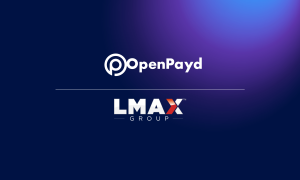Australian Crypto Exchange License Requirements to be Introduced to Reduce Investor Risk
Key Points:
- Australian crypto exchange license is undergoing regulatory changes, with new regulations being implemented to foster growth and ensure consumer protection.
- Australian crypto exchange license requirements aims to bring stability and accountability to the digital asset market, drawing inspiration from regulatory models in the United Kingdom, Canada, and Singapore.
- Global trends show increased oversight in the cryptocurrency industry, with other countries adopting comprehensive measures to regulate digital assets and safeguard investors and the financial system.
According Bloomberg, Australian crypto exchange license regulation is undergoing a significant transformation, with imminent regulatory changes set to redefine the industry’s dynamics.

Australia’s Regulatory Push in the Cryptocurrency Industry
To foster the growth of digital assets and ensure consumer protection, the Australian government is in the process of implementing new regulations. These regulations mandate that crypto exchanges operating within the country obtain a financial-services license from the Australian Securities and Investments Commission (ASIC).
Australian crypto exchange license licensing requirement extends to digital-asset platforms that hold over A$5 million (equivalent to $3.2 million) in assets, or A$1,500 for individual users. The proposed regulatory framework builds upon existing laws, aiming to bring stability and accountability to the digital asset market in Australia. Moreover, these regulations will encompass stringent rules governing custody and transaction standards. Notably, these standards have drawn inspiration from regulatory models already in use in the United Kingdom, Canada, and Singapore, countries known for their robust cryptocurrency frameworks.
Global Trend of Increased Oversight in Cryptocurrency Markets
Australian crypto exchange license regulatory push reflects a global trend of increased oversight within the cryptocurrency industry. Last year’s $1.5 trillion crypto market downturn exposed vulnerabilities and risky practices, resulting in the collapse of high-profile trading platforms. A notable example is the bankruptcy of FTX exchange, led by Sam Bankman-Fried, who now faces a multibillion-dollar fraud trial in the United States. These incidents underscore the necessity of effective regulation to safeguard investors and the broader financial system.
Across the world, other countries are also adopting measures to regulate digital assets comprehensively. The United Kingdom is in the process of regulating cryptoasset activities, including trading, lending, and custody, under the same regulatory framework as traditional financial services. In Canada, firms are mandated to follow stricter regulations, with a particular focus on segregating customer assets and a prohibition on offering margin or leverage.
Coincu will continue to update the situation related to Sam Bankman-Fried, you can find out more information through this article.
DISCLAIMER: The information on this website is provided as general market commentary and does not constitute investment advice. We encourage you to do your own research before investing.






















